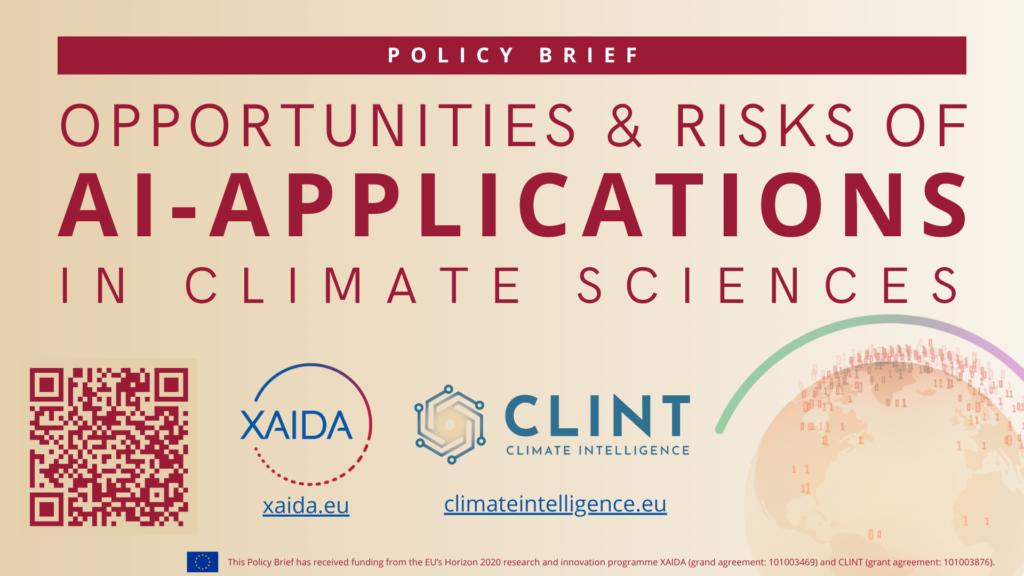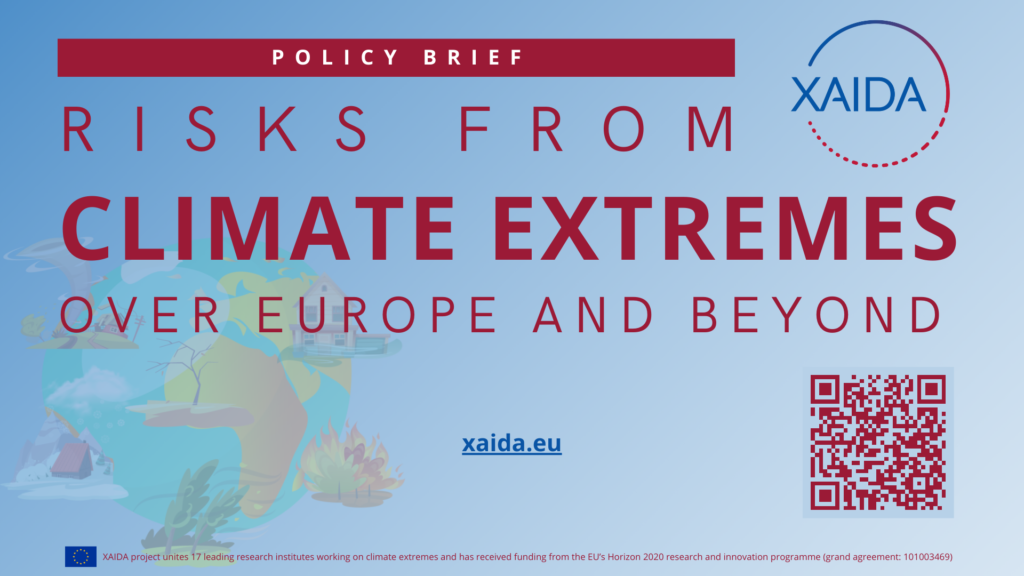POLICY BRIEF: Opportunities & Risks of AI-applications in Climate Sciences

Artificial Intelligence (AI) is unlocking new frontiers in climate science and climate services—from improving impact-based seasonal forecasts to longer-horizon climate risk projections. However, the rapid growth of AI also brings challenges related to reliability, interpretability and trustworthiness. To fully harness AI’s potential while maintaining public trust, we need to invest in data-driven and hybrid models, transparent and open data practices, and robust validation. Funders, academics, and climate-tech startups must work together to develop scientifically credible AI-based climate services – at a time when informed responses to climate risks are more critical than ever.
POLICY BRIEF: RISKS FROM CLIMATE EXTREMES OVER EUROPE AND BEYOND

Extreme weather events in 2023 illustrated how poorly prepared the world is for the growing risks of climate change. Nowadays it is possible to use attribution science to investigate the role of climate change and other factors in specific weather and climate extremes. Attribution studies estimate by how much a specific extreme event was made more (or less) likely and/or intense because of climate change. This policy brief summarizes key learnings from the first two years of the XAIDA project and formulates recommendations.
